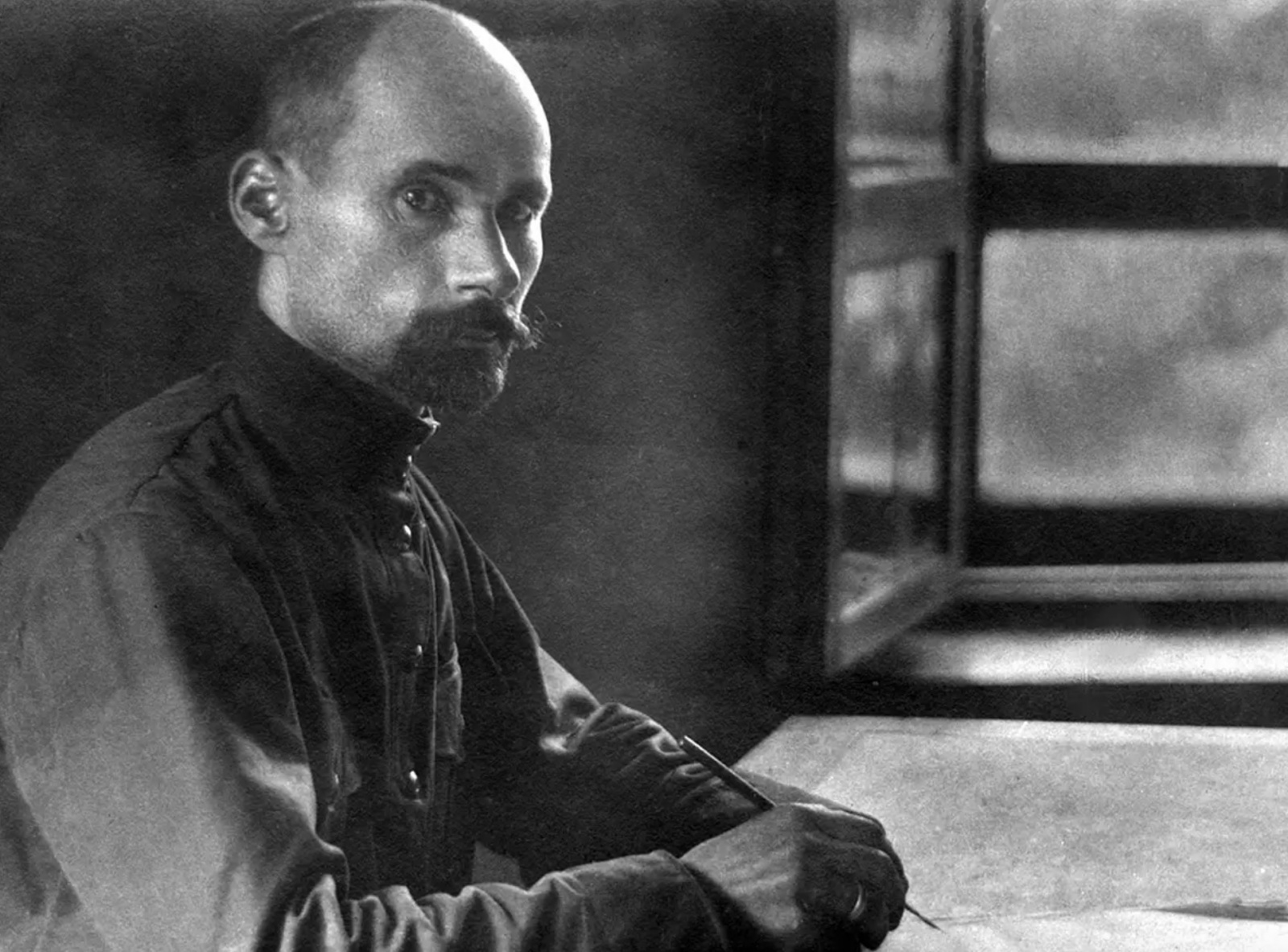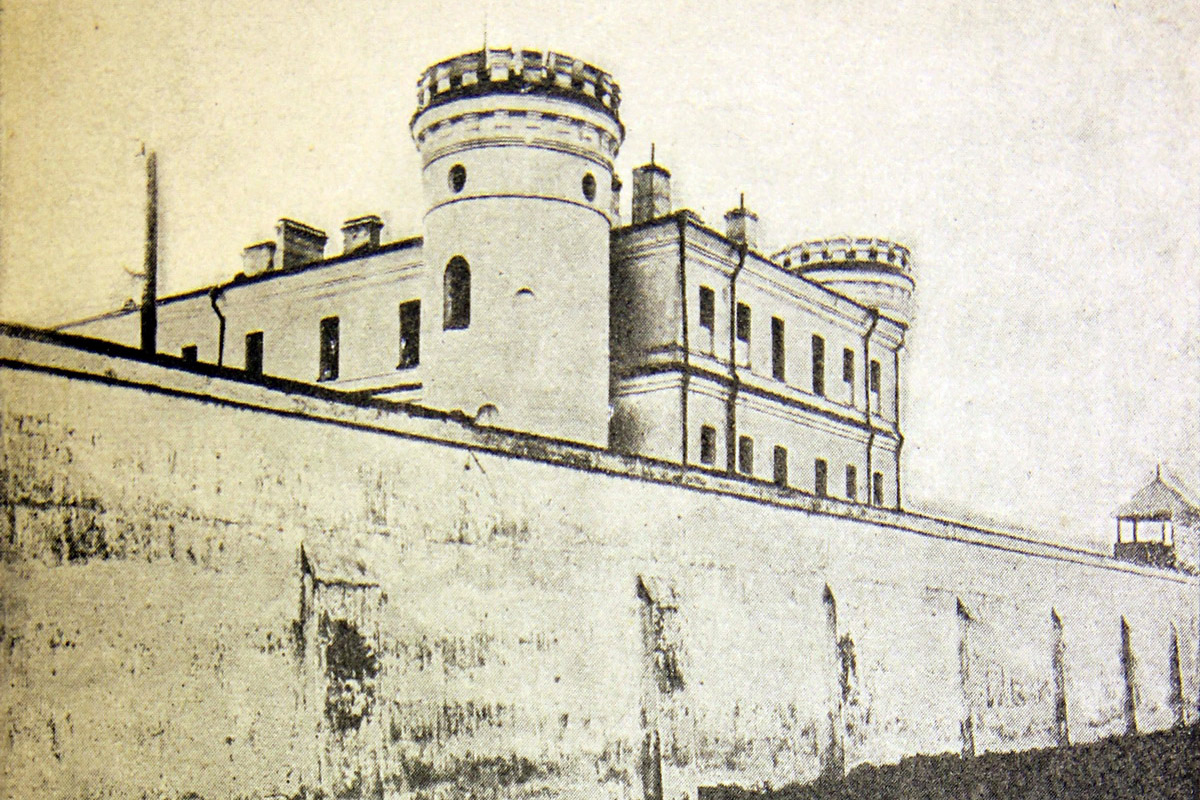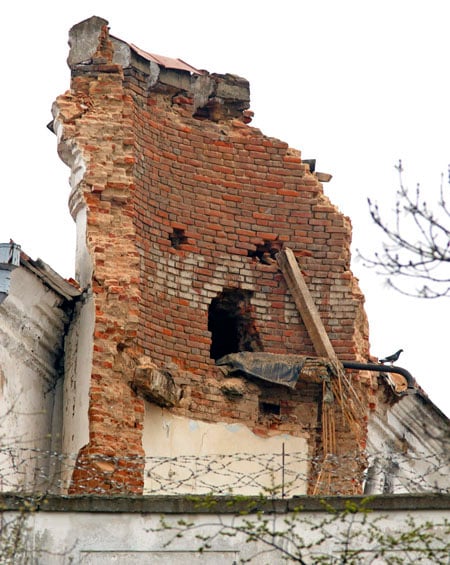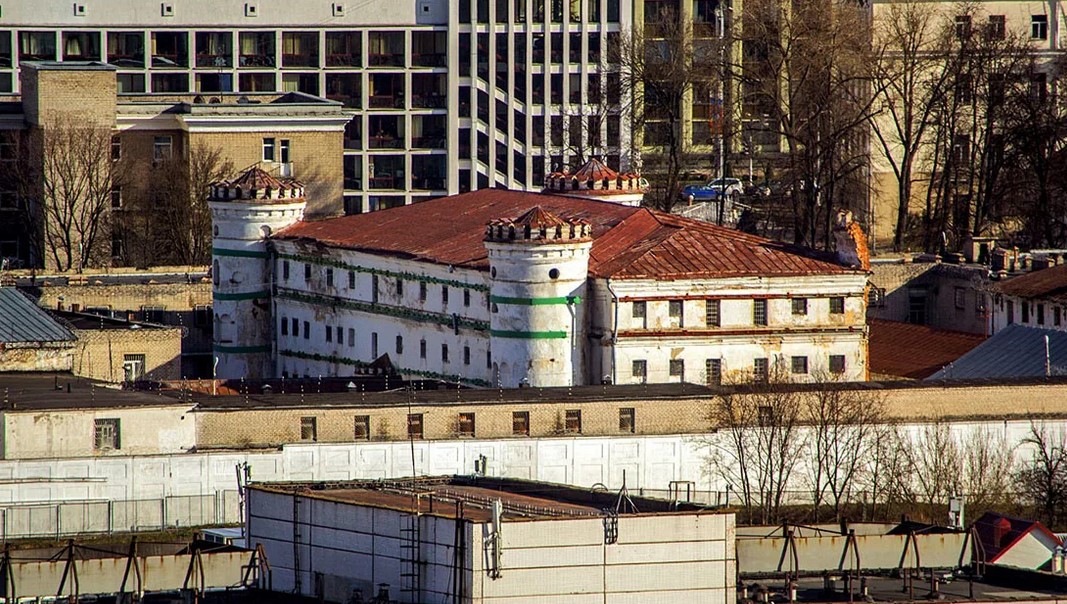In our article, we will tell you about what exactly makes this place in the center of Belarusian capital famous, where for almost 200 years prisoners have been held.
Since April 25, pre-trial detention center No. 1 on Volodarsky Street in Minsk, the famous Valadarka, has stopped accepting parcels for prisoners. The reason is the dissolution and relocation of the institution. The prisoners were transferred to a specially built pre-trial detention center in Kolyadichi.
According to "Viasna" information, at least 29 political prisoners have been held in Valadarka recently, including former district police officer Yevgeny Tikhonov, teacher from the capital's 23rd gymnasium Daria Khmelnitskaya, architect Daria Mandik.

In fact, since its construction in 1825, Valadarka (then still Pishchalovsky Castle) has been used as a prison. The tsarist, then Soviet, and finally Lukashenko's authorities have held people in custody here. Among the well-known inmates were the father of Belarusian drama Vincent Dunin-Marcinkiewicz, the classic of national literature Yakub Kolas.

Belarusian politicians of the independence era - Nikolai Statkevich, Pavel Severinets, blogger Sergei Tikhanovsky, journalist Marina Zolotova, and many others.
In tsarist times, the revolutionary Ivan Pulikhov, who organized an assassination attempt on the Minsk governor, was executed by hanging in the prison tower. During the Stalinist repressions, Belarusian figures of culture, science, and art were shot in the basement of the building.

For the past 30 years, death sentences have been carried out there (Belarus is the only country in Europe where this type of punishment is applied). According to human rights activists, the number of executions may exceed 300 people.
The building of the former Pishchalovsky Castle, which will soon be 200 years old, has the status of historical and cultural value. However, it is in an extremely precarious position. Prisoners have repeatedly noted the terrible conditions of detention. And in 2008, one of the four towers located around the perimeter of the building simply collapsed.

The future of Valadarka looks uncertain. After all prisoners are removed, it will be handed over to the city, and reconstruction and repair will begin, requiring millions of dollars. What will happen next in Pishchalovsky Castle is unknown. One of the projects envisages the construction of a hotel and entertainment complex on the territory of Valadarka. Whether this corresponds to ethical norms is an open question.

Human rights activists have repeatedly called for the creation of a museum in place of Volodarka.
Since April 25, pre-trial detention center No. 1 on Volodarsky Street in Minsk, the famous Valadarka, has stopped accepting parcels for prisoners. The reason is the dissolution and relocation of the institution. The prisoners were transferred to a specially built pre-trial detention center in Kolyadichi.
According to "Viasna" information, at least 29 political prisoners have been held in Valadarka recently, including former district police officer Yevgeny Tikhonov, teacher from the capital's 23rd gymnasium Daria Khmelnitskaya, architect Daria Mandik.

In fact, since its construction in 1825, Valadarka (then still Pishchalovsky Castle) has been used as a prison. The tsarist, then Soviet, and finally Lukashenko's authorities have held people in custody here. Among the well-known inmates were the father of Belarusian drama Vincent Dunin-Marcinkiewicz, the classic of national literature Yakub Kolas.

Belarusian politicians of the independence era - Nikolai Statkevich, Pavel Severinets, blogger Sergei Tikhanovsky, journalist Marina Zolotova, and many others.
In tsarist times, the revolutionary Ivan Pulikhov, who organized an assassination attempt on the Minsk governor, was executed by hanging in the prison tower. During the Stalinist repressions, Belarusian figures of culture, science, and art were shot in the basement of the building.

For the past 30 years, death sentences have been carried out there (Belarus is the only country in Europe where this type of punishment is applied). According to human rights activists, the number of executions may exceed 300 people.
The building of the former Pishchalovsky Castle, which will soon be 200 years old, has the status of historical and cultural value. However, it is in an extremely precarious position. Prisoners have repeatedly noted the terrible conditions of detention. And in 2008, one of the four towers located around the perimeter of the building simply collapsed.

The future of Valadarka looks uncertain. After all prisoners are removed, it will be handed over to the city, and reconstruction and repair will begin, requiring millions of dollars. What will happen next in Pishchalovsky Castle is unknown. One of the projects envisages the construction of a hotel and entertainment complex on the territory of Valadarka. Whether this corresponds to ethical norms is an open question.

Human rights activists have repeatedly called for the creation of a museum in place of Volodarka.


 Continue
Continue
